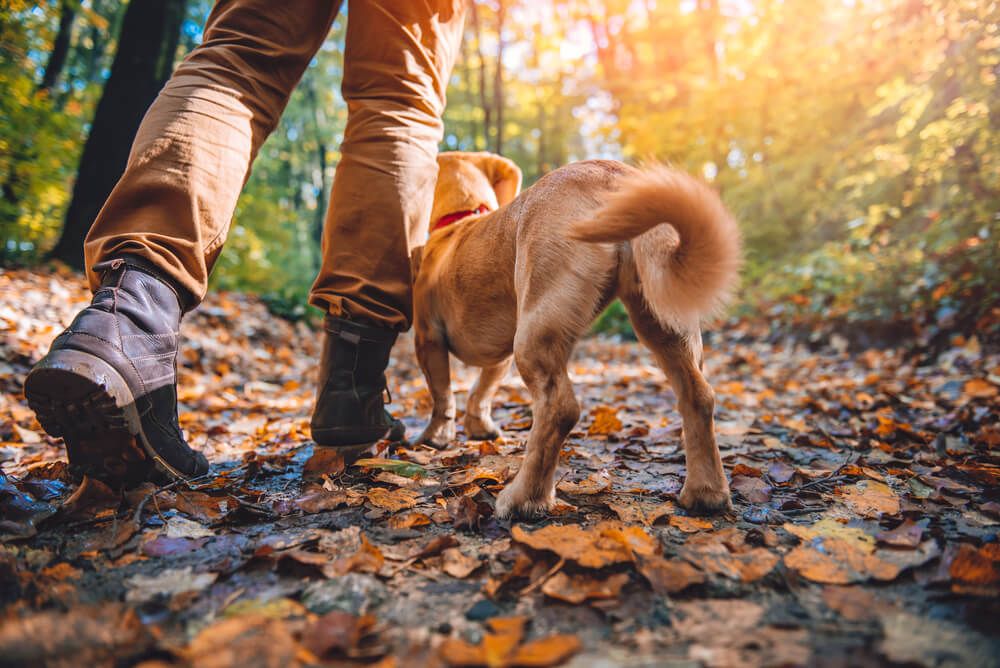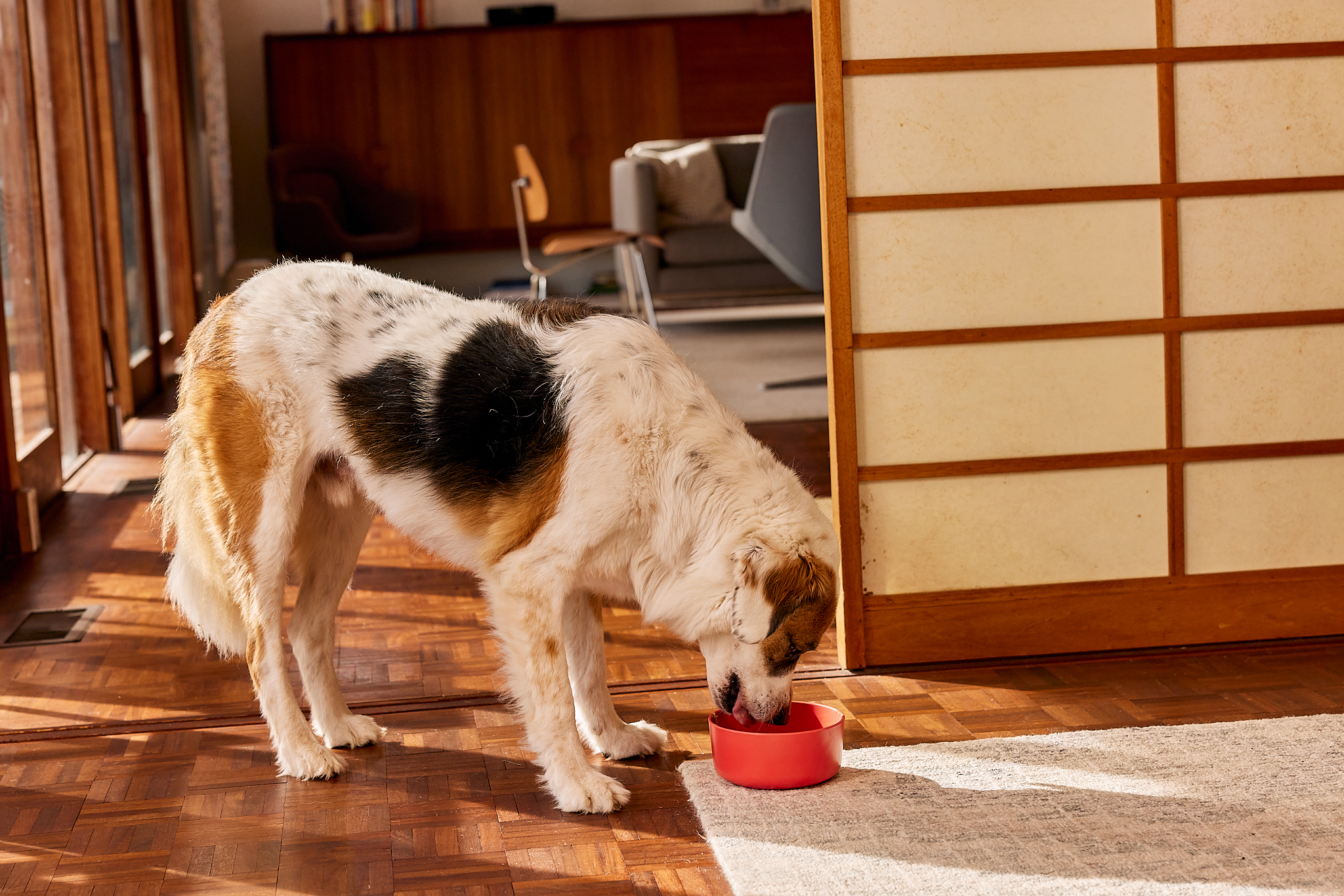Hey Ollie blog readers! We’re offering you an exclusive 60% OFF your starter box! Try now!
One of the most exciting parts of summer is spending more time outdoors with your dog. While you’re planning days at the beach, hiking, and blazing new trails it is also important to think about keeping your pup safe. You may have packed plenty of cool water, snacks, and some first aid supplies, but have you considered your tick prevention plan? Ticks can transmit diseases to your pup including Lyme disease. Learn all about Lyme — and how to keep your pup safe!
What is Lyme disease in dogs?
Lyme disease is caused by a type of bacterium carried by ticks. It settles into your dog’s joints most of the time. Unlike in humans, dogs don’t get a bullseye rash, According to VCA Hospitals, “Many dogs affected with Lyme disease are taken to a veterinarian because they seem to be experiencing generalized pain and have stopped eating. Affected dogs have been described as if they were walking on eggshells. Often these pets have high fevers. Dogs may also begin limping. This painful lameness often appears suddenly and may shift from one leg to another. If untreated, it may eventually disappear, only to recur weeks or months later.”
Common signs & symptoms of Lyme disease
While there are many causes for the symptoms listed below, if your pet has any of the following your vet may want to test for (and hopefully rule out) Lyme disease:
- Limping
- Lack of interest in food
- High fever
- Pain
- Vomiting
- Weight loss
- Joint pain
- Swollen joints
Dangers of Lyme disease
If left untreated, in some cases Lyme disease can be fatal. Even if the disease is not fatal, it can cause some lasting damage. Untreated Lyme disease can also cause damage to your dog’s liver, kidneys or heart. This is why it is very important to get your dog to the vet if you think they might have Lyme disease.
How are dogs tested for Lyme disease?
Lyme disease is generally diagnosed via a blood test. If your dog has any of the symptoms listed above, your vet may order bloodwork to confirm the diagnosis.
Lyme can be difficult to diagnose for a few reasons. First, the test can return a false negative if the dog is infected, but has not yet formed antibodies, or if your pup never forms enough antibodies to cause a positive reaction.
You should not have your dog tested any earlier than 4 weeks after they were bitten by a tick. This is becaue it is likely that you will get a false false negative result due to the lack of antibodies.
In the same vein, some dogs that have been infected for long periods of time may no longer have enough antibodies present to be detected by the test. Therefore, according to VCA Hospitals, a positive test is meaningful, but a negative is not.
Tips for preventing lyme disease
Lyme disease is preventable. There are a few things you should always do to keep your pup safe

1. Avoid tall grass and wooded areas when possible
If you don’t spend time where ticks are commonly found, you decrease your dog’s chances of getting Lyme disease. This method of prevention is not foolproof as ticks can even be found in some urban areas.
2. Check your dog for ticks frequently
This includes their ears, eyelids, between their toes and their groin areas. Ticks can hide anywhere on your dog’s body so checking frequently is a good way to ensure your dog doesn’t have ticks.
3. If you find a tick, remove it ASAP
Some studies have shown dogs arent at risk for Lyme disease until the tick has been feeding for at least 12 hours. So, if you are checking frequently and can remove the tick quickly, there is less to worry about.
4. Use a preventative medication
Flea and tick preventatives can keep these pests away from your pup. Chat with your vet about options for preventative medication. These usually come in the form of monthly pills, topical gels or collars.
5. Have your pup vaccinated
Chat with your pup’s vet about risk factors. There is a vaccine for Lyme disease and if you like to hike or you live in an area with a lot of ticks your vet may recommend getting your pup vaccinated.
Can I get Lyme Disease from my Dog?
No, dogs cannot pass Lyme Disease to their owners. However, it is important to wear gloves when removing a tick from your dog. The infected tick can make you sick too. If you have a cut or wound on your hands/fingers the bacterium can pass through the open wound and make you sick. Be sure to properly kill and dispose of the tick once you’ve removed it from your pup as a tick bite can still make you sick. Humans can get Lyme disease, just not from a sick dog.
The Ollie blog is devoted to helping pet parents lead healthier lives with their pups. If you want to learn more about our fresh, human-grade food, check out MyOllie.com.
Tagged As:

The nutrition your dog needs,
the food they want.

Enjoying our articles? Subscribe our Newsletters and get new articles directly to your inbox
You might also like
3 July 2025
5 MINS READ
How Fresh Food Can Help Your Dog Have Perfect Poops
As a pup parent, you’re likely very familiar with your dog’s bathroom habits. While it may not be the most glamorous part of taking care of your pup, a dog’s stool can be one of the most dir…
by Ollie Pets
4 June 2025
5 MINS READ
How Can Fresh Dog Food Help with Weight Management?
Maintaining a healthy weight is one of the most important aspects of your dog’s overall health and longevity. Being overweight or underweight can result in health complications and conditions that…
23 May 2025
5 MINS READ
Why Fresh Dog Food Makes Happier, Healthier Dogs That Live Longer
Every pup parent wants their dog to live a long, happy life, and the path to a healthier, happier dog starts with what’s in their bowl. Recent research and expert insights reveal that fresh dog …
by Ollie Pets







